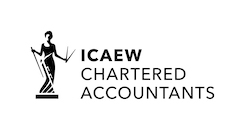BUDGET UPDATE : MARCH 2014
Budget/Finance Bill 2014
As I am sure you are aware, George Osborne’s fifth Budget speech took place on 19 March 2014. As with all Budgets in recent times there has already been much media coverage of the speech and various announcements made. In addition, much of the Finance Bill content was released for consultation in December 2013 and some of the Budget content has been “leaked” over recent weeks, although this year there were certainly some surprises.
Whilst there were clearly a number of proposals to be welcomed, in particular higher personal tax allowances, flexible pension arrangements, a higher limit for qualifying plant and machinery investments, granny bonds and super ISAs, the purpose of this circular is to highlight those proposals less well publicised.
Matters previously announced and included in the Finance Bill (some of which have been modified by Budget announcements) are as follows:-
· With effect from 6 April 2014 legislation will be introduced to increase the exemption threshold for employment related loans, from £5,000 to £10,000. Where a loan exceeds this figure at any point in the tax year a taxable benefit will arise if the loan is interest free or interest is paid at less than HMRC’s official rate (currently 4%). It should be noted that the 25% tax charge on company loans outstanding (unless repaid within nine months of the employer company’s balance sheet date) to director shareholders remains as before and is chargeable on all loans irrespective of their size. Proposals made last year to increase the rate to 40% are not to be implemented (at least for the time being).
· An individual’s private residence is normally exempt from Capital Gains Tax but some charge can arise if the taxpayer has not lived in the property throughout the whole period of ownership. However, since 1991 the last 36 months of ownership of a qualifying property has always been exempt, even if the owner of the property is not living there. For disposals on or after 6 April 2014 this period is reduced to 18 months. Transitional provisions will mean that, provided contracts have been exchanged prior to 6 April, the 36 month rule will still apply if completion does not take place until after that date. In addition relief for the last 36 months of ownership will continue for disposals in certain circumstances where the sale is to facilitate moving into long term care.
· Capital allowances are currently available under the business premises renovation allowance rules which provide 100% initial allowance for expenditure incurred on the renovation or conversion of business properties that have been unused for at least a year in disadvantaged areas of the UK. With effect from 1 April 2014 for companies and 6 April 2014 for sole traders and partnerships, legislation is being introduced to clarify the scope of the qualifying expenditure under these arrangements. Only the actual costs of construction, building work and certain specified activities such as architectural and surveying services will now qualify, together with unspecified associated activities (such as project management services) up to a limit of 5% of the actual costs.
· Measures are being introduced, with effect from 6 April 2014, aimed at ensuring that the correct amount of tax and national insurance contributions are paid where United Kingdom workers are employed by offshore companies or engaged by or through offshore intermediaries. This is designed to prevent offshore employment intermediaries being used to avoid employment taxes. Other legislation will prevent onshore intermediaries being used to avoid employment taxes by disguising employment as self-employment.
· Important changes are being made to tax issues relating to partnerships, in particular a limited liability partnership (LLP) which will be effective from 6 April 2014. One of these changes deals with the status of salaried members of LLPs. At the moment these are automatically treated as self-employed even though they may not be true equity owners of the partnership business. From 6 April 2014 such individuals will fall under the PAYE rules, including Class 1 NIC, if they fail certain key tests. Secondly, there has been increasing use of corporate members in limited liability partnerships. The corporate member’s share of profit is only taxed at the corporation tax rate and not at the (much) higher income tax rates. Rules are being introduced which will have backdated effect from 5 December 2013 and allow HMRC to challenge tax motivated allocations of business profits. A corporate member’s partnership share will not be able to exceed a reasonable rate of return on its investment in the partnership, together with market value payment for any services it renders to the partnership.
· An important change effective from 6 April 2014 for (almost) all employers is that each will receive a £2,000 allowance each year against their Employers National Insurance liabilities. For smaller owner managed companies who, over recent years, have paid their directors low salaries (in the region of £6,000 to £8,000 p.a.) this change, coupled with the increase in the personal income tax allowance to £10,000 (£10,500 from 6 April 2015) will in many cases mean it is tax efficient to increase such salaries to the £10,000 figure. Whilst the increase will result in Employee National Insurance being due at 12% (for those aged 16 and over but under the state retirement age) the Employers National Insurance will be covered by the £2,000 allowance. The 12% Employee contribution will be more than outweighed by 20% corporation tax relief on the additional salary drawn (note that the position can however be affected by the receipt of other income such as benefits in kind, interest, rents, etc and therefore each case will need to be considered individually).
Turning to the brand new measures included in the Chancellor’s Budget speech and associated press releases, the following are relevant:-
· The six monthly payment of Class 2 National Insurance for the self employed will be merged into the self assessment tax system as from April 2015.
· There is to be a consultation on limiting UK personal income tax allowances (£10,000 p.a. from 6 April 2014 and £10,500 from 6 April 2015) to UK residents and individuals with strong economic connections to the UK, so effectively denying personal allowances to those with UK income (e.g. from property rents) but who have little other connection to the UK.
· With effect from 19 March 2014 new anti avoidance rules will be introduced to combat arrangements where companies transfer profits within a group to reduce tax liabilities.
· From 6 April 2015 there is to be, in respect of savings income only (i.e. broadly bank/building society interest), a special extra £5,000 tax free personal allowance (replacing the current £2,880 10% rate band) on top of the standard £10,500 personal allowance. However, as with the current 10% rate band, this allowance will only apply to individuals whose non savings income (i.e. employment income, profits from trade, pensions, property rents) does not exceed £15,500. As such the quite generous extra £5,000 allowance will only be available in limited circumstances. Also it should be noted that it will not apply to dividend income (as dividend income is already free of tax within the basic rate band). For the director shareholders of private limited companies drawing a low salary coupled with a shareholder dividend there may be a tax benefit in taking some interest income from their companies (e.g. by paying interest on director’s loan credit balances) in priority to dividends where such interest income will be received tax free within the new £5,000 tax free savings allowance.
· A little known VAT treatment in respect of early settlement discounts is to be changed. Since VAT was introduced in 1973 where an early settlement discount is offered by a business to a customer it is permissible to only charge VAT on the value of the sale being made net of the early settlement discount, irrespective of whether the early settlement discount is taken or not. With effect from 1 April 2015 (1 May 2014 for supplies of telecommunications and broadcasting services broadly to non business customers) this practice will no longer be permitted.
· In 2015 HMRC will be given “subject to rigorous safeguards” the power to collect overdue tax liabilities directly from taxpayer accounts.
NOTE:
As with all Budget announcements the exact details of each proposal may not be known until the draft legislation is published in the Finance Bill which will be available from Thursday 27 March 2014 and based on previous years will no doubt contain countless of pages of detailed provisions. Even then proposed legislation can sometimes be revised as it passes through Parliament.
Joy Aubin
March 2014





